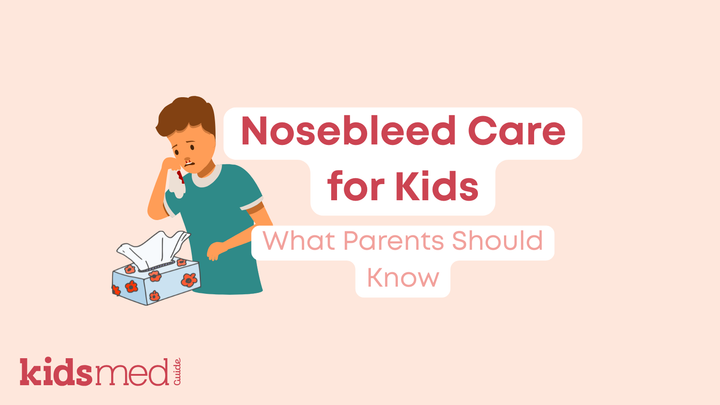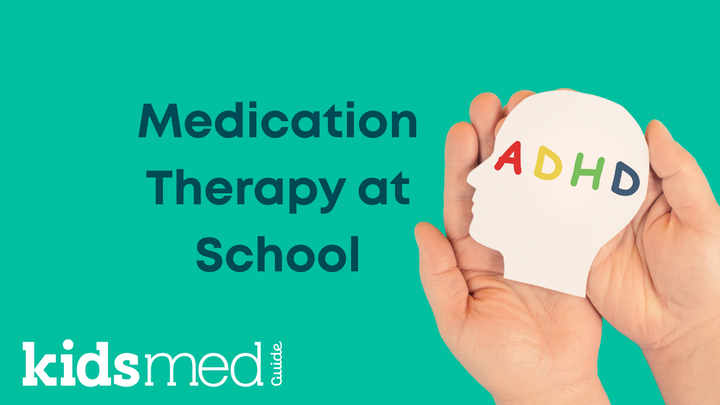Time Change Effects on Children’s Routines and Medications
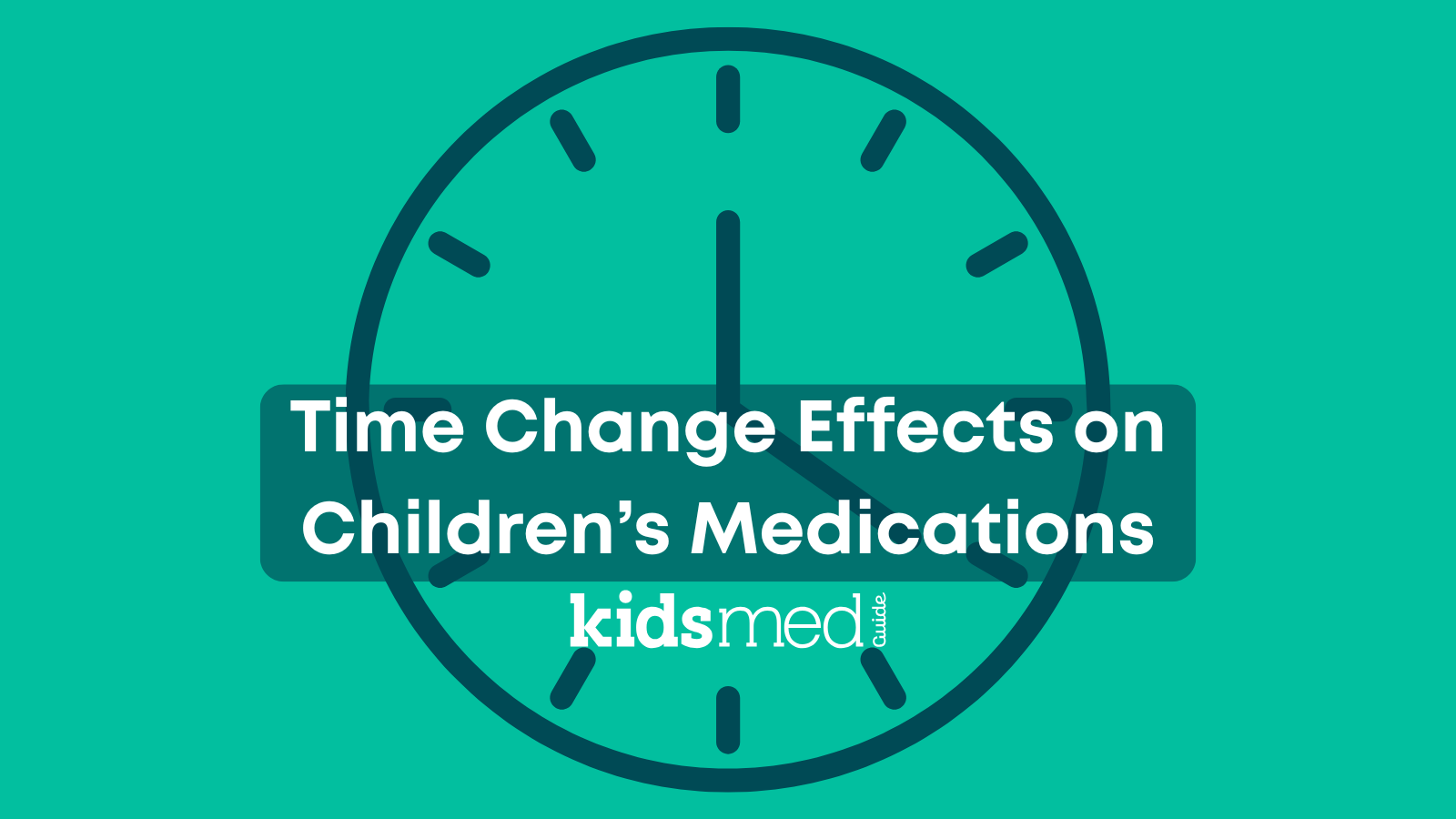
Twice a year, most of the country sets its clocks forward or back, and parents everywhere groan. Fall is especially tough. The rest of the country gets an extra hour of sleep, but parents of young kids somehow lose three. I don’t understand how that math maths, but it’s true!
My kids could give the world’s worst sleepers a run for their money, so every Daylight Saving Time change feels like a weeklong endurance test fueled by coffee.
Time changes can do more than disrupt your family’s sleep schedule. They can also impact your child’s daily routine, mood, and even their medication timing. This blog discusses adjustment techniques you can use to help your family get through the time change, including tips on medication administration.
Understanding How Time Change Impacts Kids
When Daylight Saving Time ends, mornings get lighter earlier and evenings darker sooner. This can make kids sleepy before dinner or wide awake at bedtime. Kids often still wake up at their normal time, which is an hour earlier than the day typically starts. It throws everyone off! The opposite happens when we “spring forward,” leaving everyone groggy and cranky at breakfast.
Even a one-hour shift can throw off your child’s internal clock (circadian rhythm). Young children, in particular, thrive on predictability. Mealtimes, naps, and bedtime cues are all part of what keeps their bodies and moods balanced.
These disruptions can also affect appetite, focus, and emotional regulation. For kids who take daily medications—especially those for ADHD, asthma, or allergies—the time change routine effects can influence how well their medicine works or when it should be given.
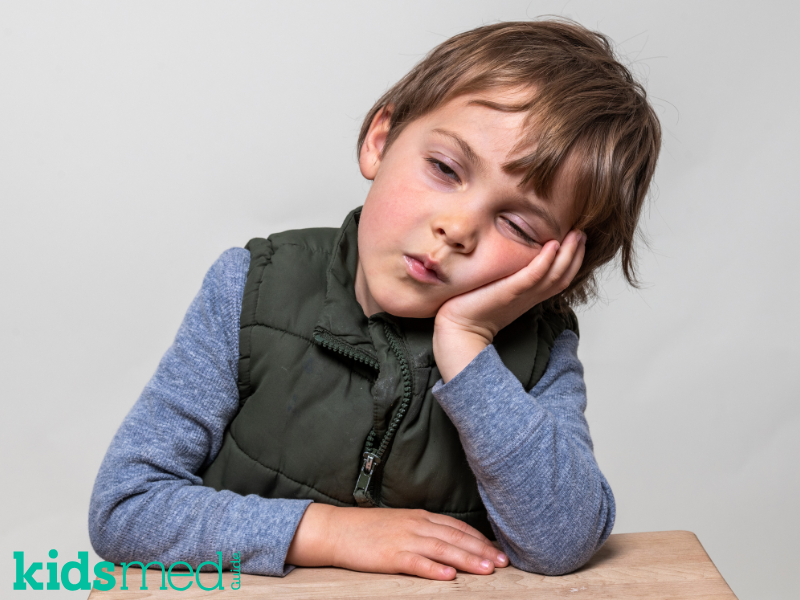
Adjusting Sleep Schedules Before and After Daylight Saving Time
The key to surviving time changes with kids is preparation. Ideally, start adjusting the kids’ sleep schedule a few days in advance. Gradually shift bedtime and wake-up time by 10–15 minutes each day until you reach the new clock time.
That’s the official expert advice, but personally, I’ve had better luck doing it in 30-minute chunks over 2 days. Trial by fire!
Other ways to help kids adapt:
- Keep bedtime routines calm and consistent (bath, story, dim lights).
- Expose them to natural light in the morning. Sunlight helps reset the body’s internal clock.
- Avoid bright screens an hour before bed.
- If naps are part of your routine, adjust those gradually, too.
Even after the time change, try to wake your child at a consistent time every morning and offer plenty of outdoor play during the day. Routine is the magic word here!
Managing Medication Timing During Time Changes
If your child takes daily medication, timing is important. Proper scheduling is crucial for drugs that depend on consistent levels in the body—such as stimulants for ADHD, inhaled steroids for asthma, or allergy medicines.
When the clock changes, you might wonder whether to give the next dose based on the “old” or “new” time. The short answer: ask your pediatrician or pharmacist. It can be medication-specific. But in general, most daily medicines can be safely adjusted by 15–30 minutes each day until you’re back on schedule.
For example:
- A morning ADHD medicine usually given at 7 a.m. can be given at 7:15 or 7:30 for a couple of days, then back to 7 a.m. on the “new” time.
- Evening asthma medications or antihistamines can follow the same gradual adjustment.
Some medications are very time-sensitive, like antiepileptics for seizures or drugs used to treat certain cancers. If your child needs to take medication at a specific time, consult closely with your doctor to create an adjustment plan.
If your child uses a rescue inhaler, fever medicine, or other “as-needed” medication, time changes usually won’t matter.
Supporting Emotional and Behavioral Adjustment
Sleep loss can make kids cranky, clingy, or downright feral, especially in the fall when the time change comes right after the sugar-fueled Halloween holiday (been there).
An hour doesn’t seem like much, but it really is! During the week following the time change, you might notice more meltdowns, early wake-ups, or skipped naps.
To help with their adjustment:
- Keep routines as consistent as possible.
- Schedule downtime after school instead of filling the week with commitments.
- Get kids outside for morning light and fresh air—this helps reset their circadian rhythm.
- Keep mealtimes and snacks consistent, focusing on whole foods and limiting sugary sweets.
- Encourage gentle physical activities like walking, biking, or playground time early in the day so children are tired at bedtime but not overly stimulated and able to wind down when it’s lights out.
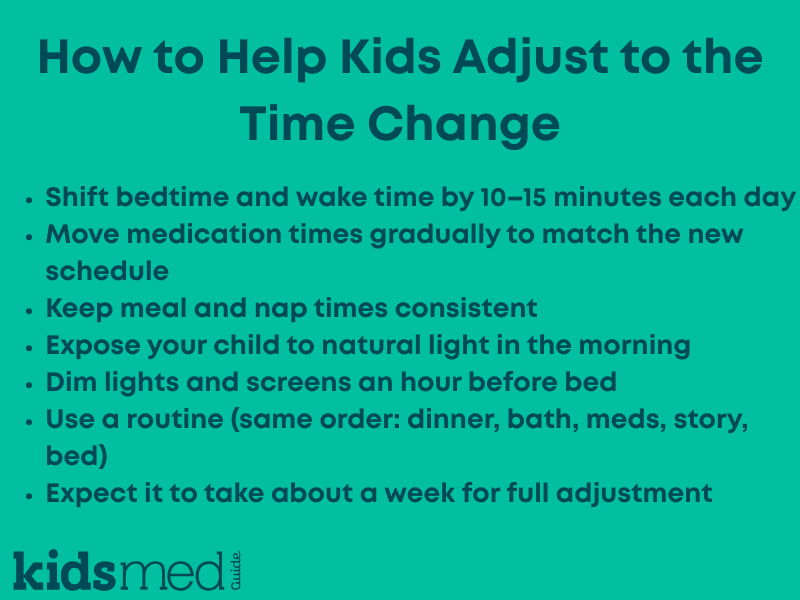
Parent Tips for Smooth Time Transitions
If you’re already bracing yourself for the next clock change, here are my top survival tips for families:
🕒 Maintain consistent meal and bedtime schedules.
☀️ Keep mornings bright and evenings calm.
🥦 Encourage hydration and healthy eating to support energy and mood.
📅 Avoid overscheduling during the adjustment week.
💊 Double-check medication timing with your child’s healthcare provider.
Daylight Saving Time changes affect the entire family, not just the kids. Parents can also feel tired and irritable. Be kind to yourself and keep your expectations realistic during that week. It might not be the best time to unpack all the holiday decorations, organize the closets, or start an ambitious new work project!
Conclusion
Personally, I hate the changes caused by Daylight Saving Time. But as my mother says, this too shall pass! The twice-yearly disruption in my household makes for a tough week. As parents, we can all do our best to help our kids gradually adjust their sleep schedule over a few days, promote healthy sleep habits, physical activity, and good nutrition, and just be patient with each other. 😄
If your child is on scheduled medication, it’s usually safe to gradually adjust it in 15-30 minute steps over a couple of days. Contact your doctor or pharmacist for medication-specific advice, especially if your child is on a precise administration schedule.
FAQ
How long does it take children to adjust to a time change?
Most kids adjust within 3–7 days, though infants and toddlers can take up to two weeks to settle into a new routine.
Should I adjust my child’s medication schedule after the time change?
If your child takes daily medication at the same time each day, make small shifts over several days rather than jumping straight to the new clock time.
What can I do if my child has trouble sleeping after Daylight Saving Time?
Stick to consistent bedtime routines, keep evenings calm, and expose your child to morning light.
How does time change affect children’s mood and focus?
Short-term sleep loss can increase irritability, hyperactivity, and difficulty focusing.
What’s the best way to get kids back on track after the time change?
Patience and predictability. Stick to regular meals, bedtimes, and medication schedules. And maybe an extra cup of coffee for you.
The following references were used to compile this information:
Daylight Saving Time. (2020, October 27). Sleep Foundation. https://www.sleepfoundation.org/circadian-rhythm/daylight-saving-time
Daylight Saving Time: Don’t Lose Sleep Over It. (2024, October 30). HealthyChildren.Org. https://www.healthychildren.org/English/healthy-living/sleep/Pages/daylight-saving-time-dont-lose-sleep-over-it.aspx?utm_source=chatgpt.com
Giannotta, G., Ruggiero, M., & Trabacca, A. (2024). Chronobiology in Paediatric Neurological and Neuropsychiatric Disorders: Harmonizing Care with Biological Clocks. Journal of Clinical Medicine, 13(24), 7737. https://doi.org/10.3390/jcm13247737
Help Kids Recover from the Time Change. (2024, March 4). ColumbiaDoctors. https://www.columbiadoctors.org/news/help-kids-recover-time-change
Kingshott, R. (2015, September 2). Study shows that teens lose sleep after change to daylight saving time. American Academy of Sleep Medicine – Association for Sleep Clinicians and Researchers. https://aasm.org/study-shows-that-teens-lose-sleep-after-change-to-daylight-saving-time/
Philadelphia, T. C. H. of. (n.d.). 5 Ways to Help Kids Adjust to Daylight Saving Time | Children’s Hospital of Philadelphia. Retrieved October 30, 2025, from https://www.chop.edu/news/health-tip/5-ways-help-kids-adjust-daylight-saving-time
Rishi, M. A., Ahmed, O., Barrantes Perez, J. H., Berneking, M., Dombrowsky, J., Flynn-Evans, E. E., Santiago, V., Sullivan, S. S., Upender, R., Yuen, K., Abbasi-Feinberg, F., Aurora, R. N., Carden, K. A., Kirsch, D. B., Kristo, D. A., Malhotra, R. K., Martin, J. L., Olson, E. J., Ramar, K., … Gurubhagavatula, I. (2020). Daylight saving time: An American Academy of Sleep Medicine position statement. Journal of Clinical Sleep Medicine : JCSM : Official Publication of the American Academy of Sleep Medicine, 16(10), 1781–1784. https://doi.org/10.5664/jcsm.8780


